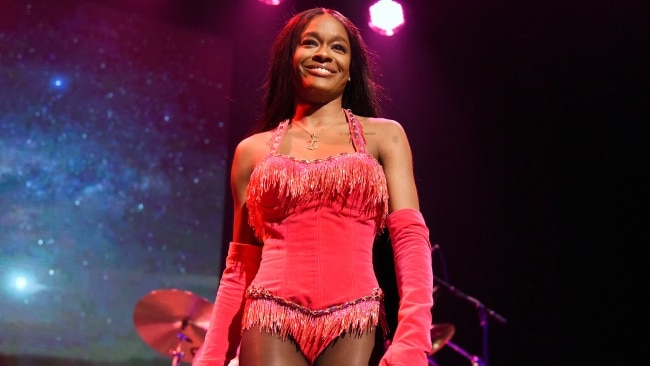Director's defence of 'dicey' Monroe film
There’s a controversy brewing around Netflix’s upcoming "demanding" film, Blonde, which recently received a restrictive NC-17 rating for the US.

There’s a controversy brewing around Netflix’s upcoming "demanding" film, Blonde, which recently received a restrictive NC-17 rating for the US.
This story includes references to sexual assault.
NC-17 ratings are seldom used but the new Marilyn Monroe film has copped one.
Only a few films over the past decade have carried the highest rating used for graphic films for audiences 18+, including Spiral, The King’s Man, and Midsommar - all of which were re-edited and resubmitted to the MPA to secure an R rating — as many cinema chains refuse to show movies with an NC-17 rating.
The director Andrew Dominik said the rumour there is a menstrual oral sex scene is "hilarious", but admits the rape scene swims in 'dicey waters'.
The rape scene is depicted in the film’s source material, Joyce Carol Oates’ seminal 2000 novel of the same name which is a fictional work that explores Monroe’s imagined “inner life.”
It’s a scene that cuts to the bone of the recounts of molestation, abuse, and sexual assault of aspiring actresses from the casting couch of Harvey Weinstein.
Writer and director Andrew Dominik admits that the film “swims in waters that are very dicey these days,” but claims the film “wouldn’t have got done,” if not for the #MeToo movement.
“Because nobody was interested in that sort of shit, what it’s like to be an unloved girl, or what it’s like to go through the Hollywood meat-grinder,” he told Screen Daily.

In a Twitter thread titled “Why I won’t be watching Blonde, and if you care about Marilyn Monroe, you won’t be either”, a ‘self-proclaimed Marilyn historian’ aired their grievance about the film’s rape scene.
Why I won’t be watching Blonde, and if you care about Marilyn Monroe, you won’t either. pic.twitter.com/gRWVQ9IEy7
— colette (@themarilyngirl) July 28, 2022
“Although Monroe was sexually assaulted as a child, she was not in her adult years - there is no documentation or words from Marilyn herself,” they wrote. “Wanting to see an ‘NC-17 version’ of Monroe’s life implies a threatening viewpoint, as if rape is entertaining.”
The thread cites Dominik’s comments to Screen Daily about the film: “It’s controversial, there’s a bit for them to swallow,” says Dominik.
“It’s a demanding movie — it is what it is, it says what it says. And if the audience doesn’t like it, that’s the f...ing audience’s problem.”
Where does cinema cross the line between provocation and exploitation?
It’s a question Olivier Assayas poses in “Hypnotic Eyes”, the fifth episode of HBO’s Irma Vep. The episode hinges on a creative battle between director René and his cast and crew, over a scene of sexualised violence.

The scene in question is erotically charged. A character, Moreno, hypnotises the leading villainess, Vep, and proceeds to grope her unconscious body through a lingering long take. Director René is accused of lacking sensitivity on gendered issues, and being blind to his male privilege. René rejects the criticism as puritanical, “Shouldn’t movies get people off?” Assayas arrives at no conclusion, leaving the audience in a grey area.
Depictions of sexual violence in cinema are so often problematic because the films do not concern themselves with the nuanced psychological consequences of trauma. Rapes are mishandled as a plot device, often to motivate male characters (Cristian Mungiu’s Graduation), or for gratuitous shock value (the rape of Sansa Stark.)
But Blonde is very much concerned with the psychological fallout of trauma, and how Monroe feels.
“It tells the story of how a childhood trauma shapes an adult who’s split between a public and a private self,” says Dominik. “It’s basically the story of every human being, but it’s using a certain sense of association that we have with something very familiar, just through media exposure.
“It takes all of those things and turns the meanings of them inside out, according to how she feels, which is basically how we live.”
Netflix is set to release Blonde on September 28, 2022, after a premiere at the Venice International Film Festival, where it will compete for the Golden Lion.
If this story has raised any issues for you, please call Lifeline on 13 11 14 or 1800 RESPECT.


